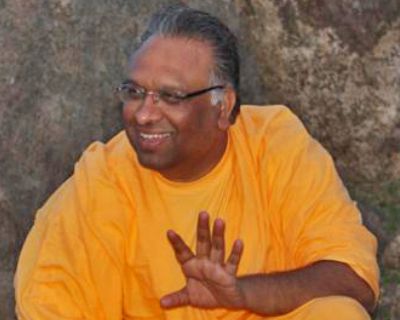- Part 1
- Part 2
- Part 3
A young man looks for a job. You ask him, ‘Why?’
‘Because, I want to make money’, he says.
‘Oh, you want to make money so that you are respected? Regarded by your parents, friends, family? So that your woman can now depend upon you?’, you ask in return.
‘Not really. Of course, I do want the respect of all these people, and I do want my family to find me trust-worthy enough to depend upon me. But, I have a greater ambition to make lots of money.’
‘Lots of money needed to lead a luxurious lifestyle? To travel all over the world? To spend a lot on yourself? To buy the best things?’, you persist. Surprisingly, the young man doesn’t get irritated but continues his candid tone.
‘I definitely want to live well and I want those around me also to live well; I don’t believe in principles of minimalistic life. But, that is not the point of making money’.
You now push the conversation towards the cliff, unsure how the young man would receive or respond. ‘If all that you wanted is to live well, and for those of your family to live well, with no dearth at any point in time, then, is that the purpose of you seeking a job? Because, if all you wanted to make was money, then why go for a job at all? You could learn the ways of the stock market, do buy-sell smartly, maybe buy some critical properties and rent them, or trade in securities, do something that yields quick money, isn’t it? Why take up a job, and slog it out for a pittance for so many years?’ You know if the young man survived this, it would be your time on the cliff. Surprisingly, the young man looks into your eyes, with a gleam in his eye, and replies quite firmly…
‘Of course, I have thought of all of that and they’re all important too, but not the purpose. I am interested in creating wealth. Not just add money into my bank account. I intend to deploy my faculties, produce something worthwhile, and see how much wealth can be produced. I want to see how valuable and capable my intelligence is, and I want to see the harvest that can be produced by actual thought-application, and thereby create wealth. I want my talents to flower, manifest completely, so that they can be used productively, to create wealth’.
You are on the edge of the cliff now. You still push, ’So, becoming a wealth-creator is the point then? Why not become independent? Why go for a job? Why allow someone else to use your abilities and talents for their prosperity? Why not conserve every faculty and ability and use it for your advancement alone?’ The young man had an answer to that too. My God, how can he be so sorted, you wonder!
‘I have thought of that too. If I used my faculties and abilities just to myself, for myself alone, I think I would be the loser. Because, I wouldn’t know how to use or harness my faculties and abilities most effectively. To become independent, I need to hire someone. When I don’t know how to use my own abilities rightly, how to harness them effectively, how can I now seek to employ someone else’s faculties and abilities? It would be foolish, wouldn’t it? So first, I would rather learn to be used by the world well, by the best men out there, learn how to use these inner abilities and latent talent. External prosperity and wealth creation is, largely, a measure of how much of the inner talent and ability has been used rightly. I must learn the art and science of recognising, casting, deploying, and harvesting each of these abilities. What better platform can there be for this learning than a job?’
The young man must have continued. You had already dropped off the cliff, elated at finding such a young soul!
When you seek to produce prosperity here by deploying God’s gifts in you — your talent, your sincerity, your earnestness, your intelligence, your hard work, your forbearance, your patience, your courage — then the more you spend them here, the more God replenishes them within you, and you shall discover a certain inexhaustible pool within you, that comes up with better and better capabilities, talents, and intelligence. Of course, the moment you own them as yours, by becoming conscious of the power they wield in the world outside, when you have lost your innocence, they can desert you, or you shall lose them all. It is safer if they left you; but, in many cases, they can distort you into some form of perversion.
You discover God, rather God discovers you, when you summon every part of you and deploy them in the world outside, engage them in work or whatever, rightly, and find good harvests.
This is how God would introduce this young man into the very cycle of prosperity that God himself has created. And, since this is how God himself has created the prosperity cycle — the cycle of right inter-dependence, where my wealth is dependent upon how well you use your faculties and vice-versa — wealth creation will neither be a burden on this young man, nor will he ever go the wrong way.
Two things happen simultaneously here. The young man learns to unfurl his full potential and discover true harvests for the same. That is the first. Second, and which is more vital, he realises that these prosperity routes and cycles already exist in this universe, and he merely happened to stumble upon it. Which means, God seems to have made this universe for the sake of wealth creation and prosperity, already, and one has to merely stumble upon the way to go about it. Which means, God is the true wealth-creator, because he owns the blueprint of the prosperity cycle, and one merely joins God in this journey!
That is God! That is how you begin to discover God. And, this is when God starts taking note of you seriously. Just like prosperity, many inherent cycles exist as God here. Love, ethics, many such things. If you happen to stumble upon any of those natural cycles of order, you would have stumbled upon God. Why stumble? Because, hardly any of us have such an intuitive sense to seek God this way. We are at best, stray stalkers! To even such of us, He gives his all and shows his ways.
You have always wanted your son to do well in academics. You have dreamt of him being a professor in an esteemed institution, with groups of students thronging around him, filled with adoration in their eyes, hanging on to every word of his. You have dreamt of him submitting research papers and it being raved in the scientific community. You have even wanted your son to win the Nobel prize for some research; the Nobel committee announcing his name and you filled with pride, while your son is merely happy that you are happy, and doesn’t seem to see it as much of an achievement. Such is the stuff of your dream — how unaffected your son would be, while the world crowns him the undisputed king of intelligence and knowledge.
Still, there are miles to go before you sleep in such noble bliss. He is just now out of college, and you are seeking the best of colleges for his admission. His recent scores aren’t so competitive, and you are worried that your son may not make it, just because of some silly competitive test, whereas you inherently believe that good professors, if they looked at your son would automatically adopt him — he is so good! ‘Competition for seats? How dull!’, you curse the system. Yet, you frequent the college, trying to meet up with various professors there, each of them assuring you that they will do what they can do.
It is on one of these rounds that you meet this professor. He doesn’t seem too aloof or too ‘academic’, but looks a real man, cheerful, but very clear; not confident but clear; not exactly too sure of either himself or about what he knows, but seemed open and approachable. You like him instantly, and you start pursuing him, for the sake of your son. You feel that if he is impressed with your son, or even your sincere intentions, he could pull a few strings to ensure that your son is through. Surprise of surprises, you discover that the professor stays very close to your house, because he takes a daily walk in the very park that is near your home. So, you begin frequenting the park every day, at the very same time the professor is around. He notices you, greets you warmly with a smile, but goes about his usual business of walking. Once or twice, you see him along with a friend of his, and they are animatedly discussing something.
You make bold to walk along with him one day. He doesn’t seem to mind. He begins a conversation with you, very easy, very nice. You also answer all his questions about yourself, about what you do, etc. You ask him about himself, and he seems quite unassuming, ready to reveal anything that you ask of him. You expected some stiffness beyond a point, but you find access into him so easily. Then, you come to the point of this pursuit. Your son, and his aspiration for intelligence and knowledge, and your dreams for him. You speak about it passionately, reveal all your dreams, your aspirations, and what you think of your son and his ability. You vehemently argue how you are ready for a fair test of his capability, uphold the nobility of such a correct evaluation, rather than some ill-conceived competitive test that reveals nothing except how he was not up to speed that day, or how ill-prepared he was for the test. The professor laughs while you take a dig at the system, agreeing wholeheartedly that the system is measuring wrong things, and awarding admissions based on that for a thing that has not even been tested!
But, that is where the professor stops agreeing with you. He gently advises you that the pursuit of light, or the way one welcomes light within oneself, is not dependent on admission into any college, or any such thing. He agrees that the institution that he works in has many excellent faculty members, and any student would benefit from exposure to the right minds. But, the professor adds, and with unambiguous clarity, that whether outside the college or within, he doesn’t see that students are indeed interested in genuinely understanding something. He mentions that he wants to be candid about these things, and looks at you straight with clear eyes when he says that. Good or bad exposure doesn’t seem to matter anymore, he says. Because, the internet has made other forms of access and right exposure very possible. He doesn’t see students interested in light or clarity; they seem more obsessed with some feeling within them that they love intelligence, and the impact it has in flooring people. In other words, the professor continues, when he talks in class, most students are mesmerised at his grasp of the subject or the ease with which he lays it out, but they are not interested in discovering clarity for themselves. They don’t connect to the subject themselves; they don’t seek the help of the professor for that. All that they do is admire a lot, and if the professor took some cause within the campus, like ‘Green Earth’, they would all enthusiastically join, like faithful devotees! They would neither believe in ‘Green Earth’ themselves nor connect to the subject that the professor taught, independently. With a wry smile, and with hands thrown in the air in exasperation, the professor observed: “what is the point if one doesn’t receive light, doesn’t regard light and understanding for what it is, but merely converts everything into capability or the lack of it?”!
You are affected by what the professor says. You listen to him. But, you are confused. You wonder on the way back home, ‘Why would the professor belittle true admiration of the student like that? Why would he say that it is of no use? Shouldn’t he be happy that amongst thousands of youngsters out there who are either loitering emptily or have turned addicts of pleasure, a few of them turn up at his institution, taking on the competition, find him so worship-worthy, want to emulate him in every manner, hang around every word of his, seek inspiration from him, and are willing to be slaves to get approval from him — do all these have no value at all?’ You are shocked at this attitude of the professor. On that day, your regard for this professor drops dramatically. But, what he said still rankles. It keeps gnawing in the background. You avoid meeting him for the next few days.
Then, one day, you have made up your mind. You want to fight with the professor. You want to contest his poor attitude. So, you go to the park early and wait for him. As soon as he comes, he greets you warmly again, and you begin walking with him. You are upfront; you tell him you were upset at how he dismissed or belittled the admiration of the student. The professor turns to you and then offers to talk to you sitting on a nearby bench. He begins, “Let me explain what I meant. Consider two scenarios. Suppose there is a student of botany who is on a botanical observation trip. He sits in front of the trees, examines the leaves, the flowers, the stem, all aspects of the tree. He refers to the internet, identifies the tree, gets to know more about the species. Suppose, at this point, his teacher joins him. The teacher looks into the notes made by the student. Understands what the student is working on, or thinking about. Digs into more relevant information from the internet, and shows it to the student. Asks a few questions, and kindles the curiosity of the student. Opens up dimensions, and shows new tracks to investigate or explore for the student. Stays around to see whether the student grasps the pointers, and then leaves him. This is the first scenario. Consider the second scenario. A student surrounds the teacher. The student is continuously looking at the teacher. If the teacher moved towards a tree, the student would move likewise. If the teacher keenly observes something, the student keenly observes what the teacher is keen about, and why. If the teacher makes notes about something, the student offers to write for him, while he dictates. You get the idea, don’t you? Now, you tell me, who among the two is the better student?”
That is a no-brainer for you. You say, “Of course, the first one!” “But why?”, asks the professor. “Because, the student seems to have independent access and interest into the subject. While the second student doesn’t seem to have either the interest or the access yet. So, the second student hangs around the teacher, to get that sort of access. So, what is wrong with that?”, you counter. The professor disagrees, “That is an assumption you are making. You are assuming that unstinted adoration and admiration for the teacher will naturally lead the student to the subject. I can tell you from my experience; it doesn’t happen in most cases. In most cases, the students end up admiring the teacher for his knowledge, sincerity, some capability, and whether he showed any regard for them. They don’t seem to be interested in the subject ever.”
The professor continues, “Most of us are mere worshippers of intelligence. We consider intelligence as an extraordinary capability, wielded by a man. Most parents would look at an intelligent child and exclaim — ‘I don’t have to worry about him; he is intelligent, he will do well’. Such poor attitudes are the source of darkness. We don’t allow light to shine and change our lives, or our understanding of things. We use knowledge. In fact, we allow our ambitions to use knowledge so that we can create impressions, so that we can control outcomes better, so that we can establish ourselves as strong identities here, and so on. We don’t allow light to serve us, to help us change our poor attitudes and understanding. We are anyway attempting to become better in this world, and we use knowledge, expertise, convert them into abilities, flaunt them, and use them for impact and rewards. Show me a young man who is willing to learn — learn a subject, learn about his misconceptions, learn fundamental attitudes towards life, and I can show a thousand professors and selfless scholars who are willing to give their lives to teach such young souls”, the professor signs off in pain, getting up and walking away, leaving you disconcerted at your poor conjectures and judgments.
We have no regard for light. We don’t even know how to welcome light into our courtyard. We have never known how a simple insight can transform everything of how we see or experience, or how we understand. What is the point of something being there, if we haven’t seen how it is there, and how it functions?
Even with secular subjects like Math, History, Language, or Sociology, we have no inherent sense of them. These are not live things for us. We haven’t found regard for theory or the great minds that explored them, and the fundamental nature of their explorations. How can one expect such light to flood the inner chambers of the heart to understand something so personal like desire, principle, fear, or value? Or further, how can any of us even realise the profundity of what a Śaṅkara or Vyāsā or Buddha or JK, or their insights into life?
Find the regard to be a student of life. Approach life with reverence, not with plots or indifference. Where you are, you will find Gandhi coming and showing you the point of non-violence. Where you are, the great poets like Tagore or Kuvempu will come and show the beautiful expanse of life. Where you are, the greatest teachers of all — the Buddha, Vyasa or Śaṅkara, will make you touch something profound, real, and grounding.
Allow light to enter you.
I am a third generationer from a large family, most of whom reside in a palatial ancestral home in my hometown. It is a living house, breathing decades of tradition, having witnessed the joys and sorrows, machinations and goodwill, adhesiveness and schisms, for generations. The house, the surrounding fields, the cows, the retinue of servants, the ever-growing army of children, the extended family, well-wishers, festival celebrations, religious observances, the insidious influx of modernism; all are imbued with the presence of a grand old matriarch who resides there. Whether she accepts it or not and though some family members grudge her that, she is the centre of the house, the anchor — my great grandmother — my jijima! She is not exactly the power centre, because she holds no reigns, nor does she take any key decisions. I study in the distant city, but I am moored in the family home, and I return home as often as I can. Having spent my childhood and adolescent years there I have a good sense of all the people, their mutual equations. I have witnessed countless battles at home, watched people switching loyalties in a trice, waded through the regular undercurrents between this set of people and that set of people, and how it could suddenly erupt or be washed out on a given day. I never understood what it was all about, but I could easily sense the tension or the relief any day. I remember wanting to grow up fast so that I could be part of these adult politics and the heaviness of family battles! Also, I wanted to grow up quickly because there was a constant feeling that the big family will get splintered into many units before I have come of age, and hence, I would lose all the inside stories, and forfeit the excitement of the grapevine! But, the one constant through testing times and routine life alike is my jijima! She is the focus here.
She lost her husband when she was barely 40, though she had already lived with him for more than two decades by then. She had had an active married life, borne the loss of her husband, and experienced many years being alone. She was never unsettled; in fact, she could put everyone at ease immediately, with a conversation, with a smile, with a mere pleasantry or courtesy, or with a small gesture. She carried that grace about her as long as I remembered. She could be sharp, either in wit, or when she chose to cut someone to size, or when she entered a long-winded debate and stated her clear opinion. Usually, once she stated something, there would be such finality to it, that others wouldn’t have much to contribute thereafter, and the gathering would disperse, almost making all of us children feel that everyone obeyed her implicitly. I realised that was not the case as I grew up; just that she seemed to have a clearer view of things at home than most others. I had a very strong sense that she thought for everyone, almost like being within each of them, understood them far better than the way they portrayed themselves in the situation, and yet, there was a striking objectivity about her; no one ever thought she was usurping the decision-making or being partisan. She merely stated her view! Those moments would make me cry inconsolably, looking at how she pervaded every heart in the family, being involved in all our lives, but never exerting power, never actually intruding. At times, I would rush directly into her room and throw myself upon her. I became an unabashed fan and devotee of my jijima!
The change in me was apparent. People at home noticed that I would seek her every time, not even my parents or brother. During long holidays, I would spend a lot of time with her, in her room, cleaning up things for her, asking her about this book or that saint story, participate in her daily rituals and worship, sometimes go along with her to the temple or a friend’s house, generally hang around, and absorb her as much as possible. Everyone saw that I adored her openly; even she must have noticed it, but she didn’t say anything. Maybe, she wanted to find out what about her I adored. She didn’t reveal her mind, she hardly spoke of herself. Whatever I asked, she would respond to, and we did many things together. She liked me being around, that I could see. But, she probably considered me a youngster with some fancies, maybe. I also didn’t dig deep into her.
But, slowly, over the years, some conversations began to happen. She found me not just adoring, but quite clean and fair, maybe, and she was willing to indulge me in a debate. She seemed to like that I didn’t take sides easily, or that I didn’t give up trying to understand something or feel something easily; that I persisted. She actually told me that with admiration, when we were on the way to the temple, one day. I had goose-bumps, I hardly saw the Lord that day, I was proud of myself, behaving as though I had won the Nobel prize! I discovered that the more she talked and opened out, the more I seemed to regard her. Just to compare her with my parents or any other elders in that house, I could easily see the enormous chasm between all of them and her. Everyone were indeed concerned about the other in the house, especially about the younger lot — whether they ate well, whether they found playmates, whether they studied well, whether they had enough money to pursue or buy what they wanted, whether they happily participated in everything of home, whether they were mentally or physically healthy — I had begun to take this concern for granted in that big house. I could ask anyone to help me with my homework, for instance, and if they were busy, they would be genuinely apologetic and make it a point to compensate for it some other day. I have hardly faced indifference or neglect from anyone; nor has any other child. But, the concern and care that my jijima showed seemed to come from a different source.
One day, she started speaking. Just like that. As naturally as she refrained from speaking until yesterday, just as spontaneously and naturally she began to speak today. She needn’t have, but she cared to.
“I was married into an orthodox family. Though he held lands and was influential, my father-in-law was not a creator or producer himself, but more an inheritor. He inherited wealth, reputation, social influence and standing, and so on. My husband was also quite similar; he complied well with tradition and orthodoxy, not because he believed in it, but more due to the enormous gains that would accrue by doing it. Plus, following tradition was hailed as the right thing to do in those days; cultivating an independent mind or discovering your soul or heart was discouraged. For instance, he would argue vehemently in front of all about how sexual pleasure per se is considered sinful. In the night, though, his eyes would go greedy looking at me! In the morning, it would be ‘pāpo’ham pāpakarmāham… trāhi mām pāhi mām’ and in the night, this would be his condition. More than getting irritated or disgusted, I saw this as weakness and lack of spine, either in belief or action. Not that he was so lustful either. Yet, there was a cheapness to him, which I was perturbed about”.
“As I said, in those days, sexual pleasure was considered sinful. Therefore, getting married was considered respectable. Shirking family duties for the sake of pleasure, to catch a romantic moment with your husband was deeply discouraged. Never emptily rebelling, I went along with these ideas, but deeply in thought. I didn’t have answers to many questions that arose in me. Is marriage merely a license for sex? Or, was it meant to teach the man and woman to be responsible, learn to regard each other, do something meaningful like raising good children? Was it aimed at holding and bequeathing the torch of tradition to the next generation, and therefore, long-term commitment meant it was sacred, while sexual pleasure meant mere indulgence? I believed so, for a while. Therefore, when I heard of love stories in the neighbourhood those days, I would disagree within me vehemently! As though they sought my opinion! Gradually, I turned more liberal. I realised that finally, it was up to the individual. What he or she made of it. You could convert the institution of marriage to strike a long-term bond with your spouse, or you could be lazy, go through the motions, act your role, and stay limp. Or, your pleasure-seeking may never end; marriage may have merely given you the license. And, that is all you may treat your wife as — no different from a whore or maid-servant, or in the case of a man, someone who ought to bring home money, who is supposed to provide.”
“Very quickly, I realised that be it man or woman, the regard for spouse couldn’t be taught. Marriage or relationship finally meant a license, where each one used the other for whatever need or fancy or demand or convenience the other wanted him or her for. Just a brazen license! Your jijipa used it for pleasure within the bedroom and respectability outside, for example. So many women have sulked, hated duties, done work just for their kids, and felt neglected on their femininity constantly. Not only have men and women used each other, but they have also used Gods, manipulated tradition and customs that were bequeathed, twisted work, duty, care, even sex, for their convenience, to suit their brazen laziness and self-gratification.”
“When Susheela, your aunt, got married, it was a very happy occasion at home. We thought we found a good boy for her. Little did we realise that she was running an affair with the boy down the street even before marriage. She wasn’t bold enough to state her desire. That is what I thought at the moment I came to know of it. She married, but she couldn’t give up on that boy, and her affair continued. I confronted her, and after much persuasion, she blurted everything. If she had expressed a heartfelt want to marry this boy and live with him, I would have been liberal enough to go along with that, at those times. But, I realised that she was torn between two things. She wanted this boy, not for marriage, but to pander to her weakness for him, while she wanted to stay married to her current spouse so that she could do her duties as the wife or have kids or be responsible! ‘Susheela’! I used to utter that name again and again, and bang my head on the walls of several temples. How could I have named her ‘Susheela’!”
I remembered my aunt always being deferential to my jijima. Now, I was getting a sense of why. Probably because the secrets of her life lay with this lady! My pictures of natural respect and regard that jijima enjoyed started breaking. I started suspecting that people around her didn’t really regard her, but were deferential because she knew just too much about them! My God!
Jijima continued, “Sin is not in sexual pleasure, according to me. Sin is in lack of regard. Sin is when you use marriage or commitment to execute your self-agenda finally. Sin is in being careless, not bothering to know the other deeply, or regard the other. I see that many men and women would be fair to their spouses, would care for them. Can that be considered regard? If you treated everyone as a human being, and treated your spouse, your life-companion too similarly, can that be called regard? People confuse sexual pleasure or commitment as love. Finding the other person, discovering her or him out of genuine regard, not by merely cherishing, that indeed is love, isn’t it? For that, you must have spent considerable heart-time and heart-energy wondering why God made us either a man or woman, why this sexual being, why this want to attach oneself to the other, what is sacred about this, and so on.”
“In other words, when we choose commitment and think we are in love, or when we indulge in pleasure and think we are in love, we are merely subscribing to some idea of love; we don’t know what love is. For many years, we live in this assumed love, and then go to a saint seeking unconditional or seamless love, or some such thing. What is he going to teach us? That what we have done in the name of love is not love, was never love! Isn’t it? I had assumed it as love, gave it a self-sanction, defended it as long as I could, and then, it tore apart one day. The one who gives such a self-sanction is indeed the sinner, isn’t it? What can the saint or God do? First, absorb my sinning ways — the way I desire, the way I adopt or give, the way I move towards the other, the way I justify, the way I contain myself, the way I give myself license, the way I go on with my commitment mindlessly, irrespective of what happens out there — all these have to be absorbed, isn’t it? Only then can true love emerge, a true regard emerge.”
The sacred is that which absorbs the sinner completely. The one who has gone about assuming desire as love. The one who has gone about thinking that commitment is love. And, based on that, perpetrated actions, sought arrangements, and secured them too, as though it was some act of bravery! Celibacy is not the answer to sin. Finding regard is. Finding true love is. Finding the sacred that absorbs every sin of mine, and that which returns me to innocence, so that I can truly love again.
Without discovering the sacred, each time you do what you do as love, you are not just getting entangled, but continuing the past sin. Remember that!








